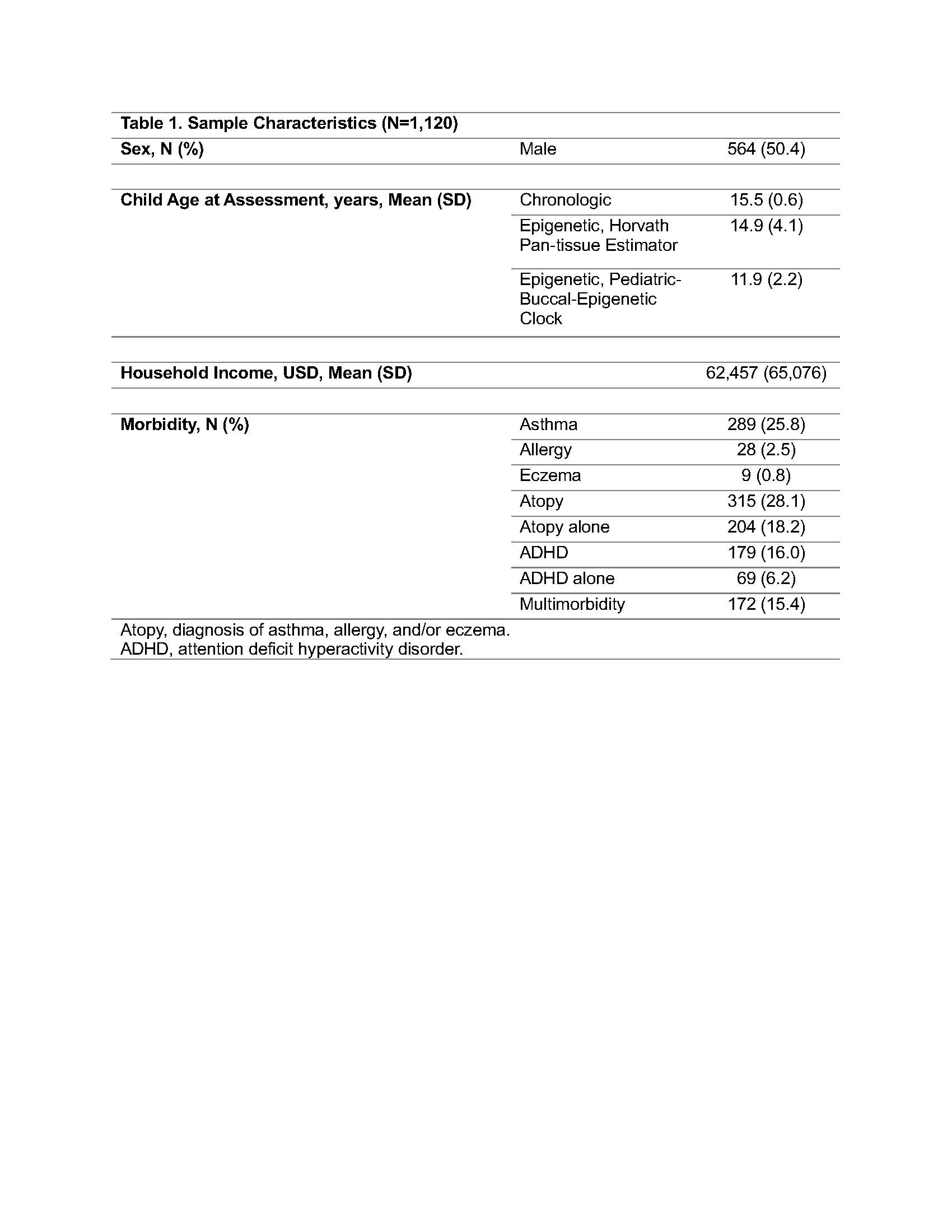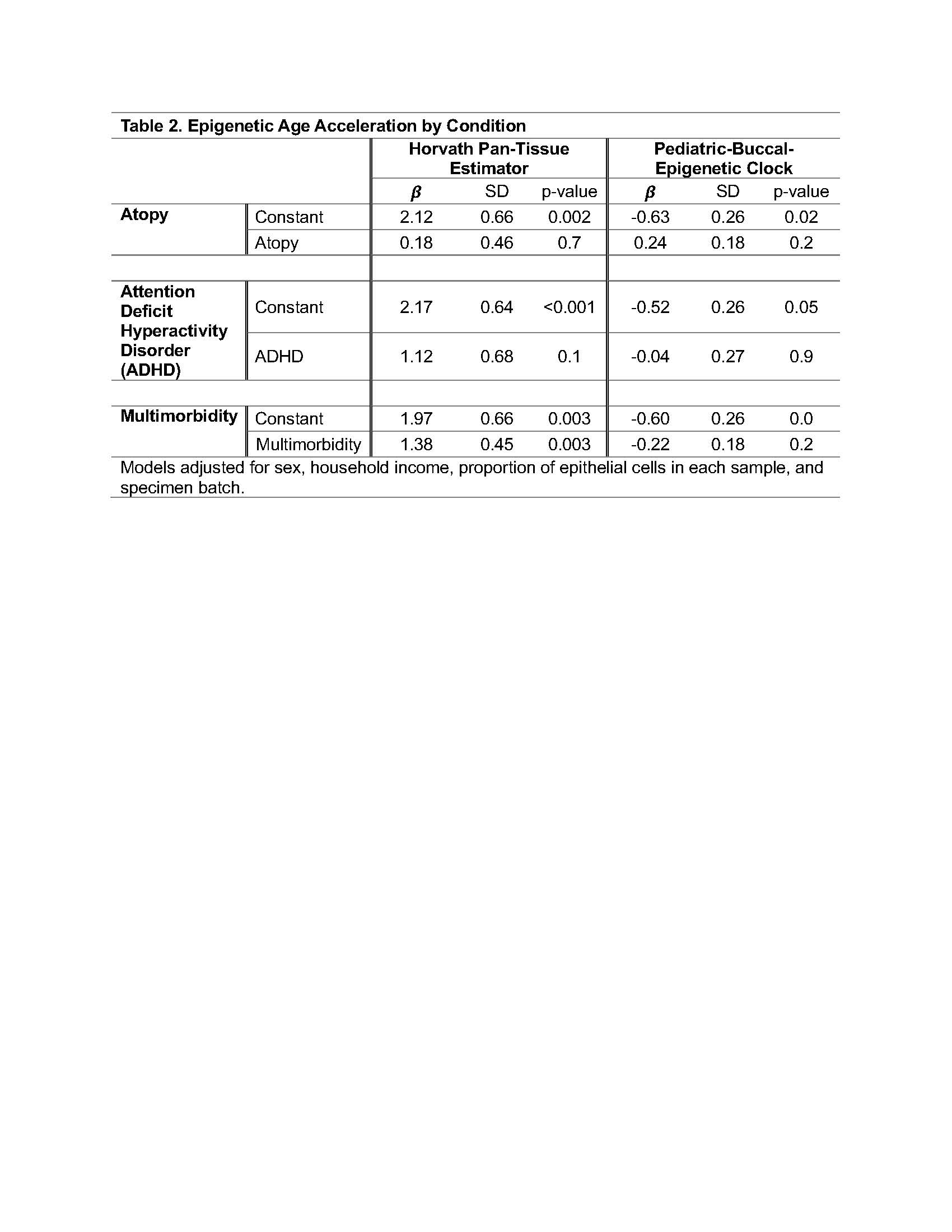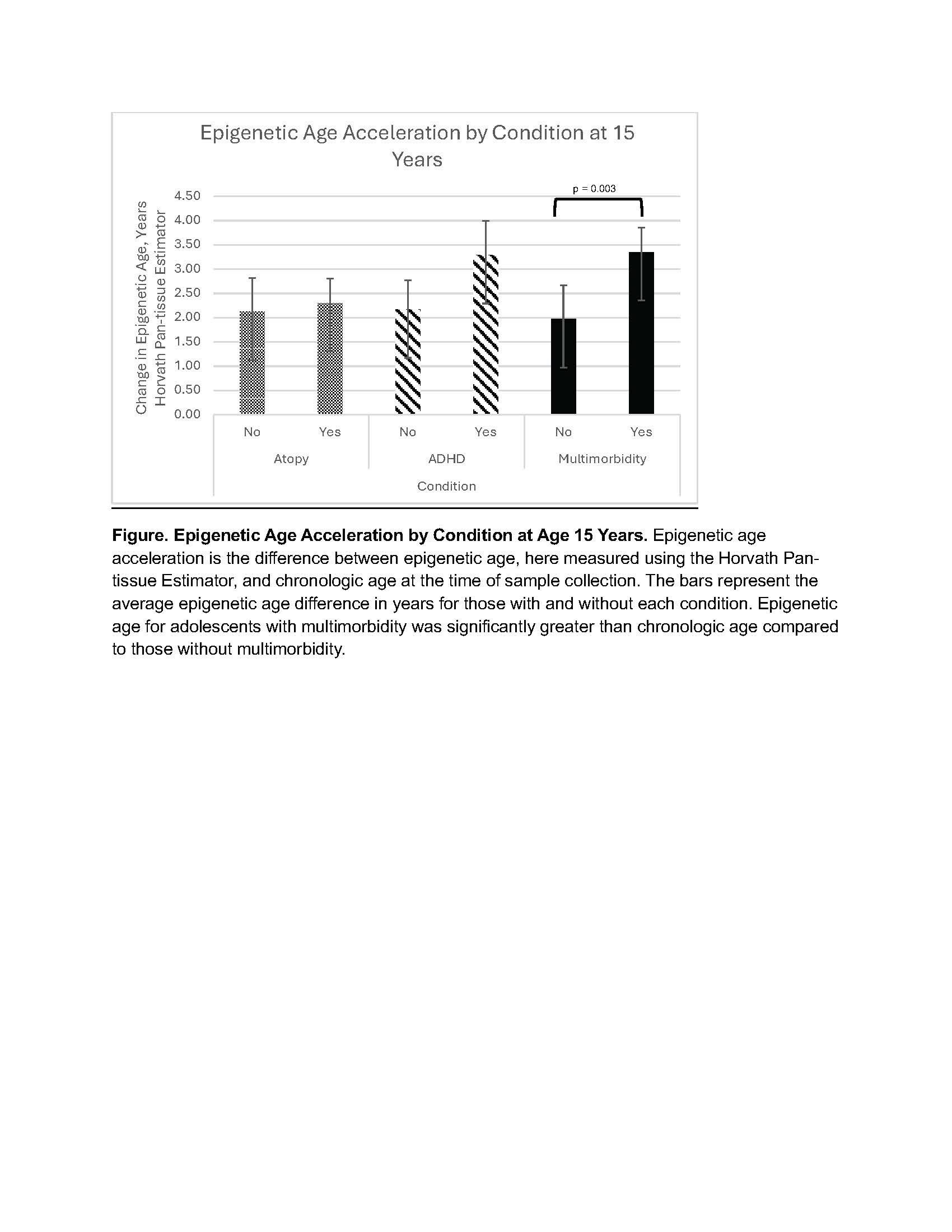Neonatal Follow-Up 3: Long-Term Outcomes in NICU Graduates
Session: Neonatal Follow-Up 3: Long-Term Outcomes in NICU Graduates
588 - Pediatric Multimorbidity is Associated with Accelerated Epigenetic Age in Adolescence
Monday, April 28, 2025
7:00am - 9:15am HST
Publication Number: 588.6341
Jonathan S. Litt, Stanford University School of Medicine, Palo Alto, CA, United States; Henning Tiemeier, Harvard TH Chan School of Public Health, Boston, MA, United States; Todd Everson, Emory University, Atlanta, GA, United States

Jonathan S. Litt, MD, MPH, ScD (he/him/his)
Associate Professor of Pediatrics
Stanford University School of Medicine
Palo Alto, California, United States
Presenting Author(s)
Background: Pediatric multimorbidity, the co-occurrence of chronic conditions affecting multiple organ systems, is common. In older adults, multimorbidity is associated with aging-related decline in functional abilities and epigenetic age acceleration (EAA), i.e. the extent to which epigenetic age outpaces chronologic age. EAA is associated with individual pediatric diagnoses like atopy and attention deficit hyperactivity disorder (ADHD), but its utility as a biomarker for multimorbidity in children has yet to be established.
Objective: We hypothesized that pediatric multimorbidity is associated with EAA in adolescence and that the effect of multimorbidity on epigenetic age is greater than for atopy and ADHD alone.
Design/Methods: We used data from the Future of Families and Child Wellbeing Study, a longitudinal cohort of socially at-risk children and their families. Public datasets included health questionnaire responses from participants aged 15 years and their primary care givers and biospecimen data from saliva samples. Predictors were diagnosis of atopy (asthma, allergy, or eczema), ADHD, or multimorbidity (2 of 14 chronic diagnoses). Outcome was EAA measured by the Horvath pan-tissue estimator (Horvath clock) and Pediatric-Buccal-Epigenetic clock (PedBE) accounting for chronologic age. We estimated the effect of each predictor on EAA in separate models, adjusting for sex, income, proportion of epithelial cells per sample, and sample batch.
Results: There were 1,120 participants in our study sample (Table 1). Half were male and average annual household income was USD62,457 (SD USD65,076). There were 204 (18.2%) with atopy alone, 69 (6.2%) with ADHD alone, and 172 (15.4%) with multimorbidity. The average chronologic age was 15.5 (SD 0.6) years. Multimorbidity was significantly associated with EAA by the Horvath clock [𝞫 1.38 years (SD 0.45), p=0.003]; atopy and ADHD were not (Table 2, Figure). No conditions were associated with age acceleration by the PedBE clock.
Conclusion(s): In this cohort, pediatric multimorbidity – not isolated chronic condition diagnosis – was associated with accelerated epigenetic age in adolescence measured by a well-established, pan-tissue age estimator. Epigenetic age acceleration may therefore reflect the impact of cumulative disease burden generally and not of a specific disease process. Given the physiologic burden and functional impact of multimorbidity over the life course, EAA may serve as a useful biomarker to predict future outcomes, counsel patients and families, and develop plans for care matching services to needs.
Table 1. Sample Characteristics

Table 2. Epigenetic Age Acceleration by Condition

Figure. Epigenetic Age Acceleration by Condition at Age 15 Years.
 Figure. Epigenetic Age Acceleration by Condition at Age 15 Years. Epigenetic age acceleration is the difference between epigenetic age, here measured using the Horvath Pan-tissue Estimator, and chronologic age at the time of sample collection. The bars represent the average epigenetic age difference in years for those with and without each condition. Epigenetic age for adolescents with multimorbidity was significantly greater than chronologic age compared to those without multimorbidity.
Figure. Epigenetic Age Acceleration by Condition at Age 15 Years. Epigenetic age acceleration is the difference between epigenetic age, here measured using the Horvath Pan-tissue Estimator, and chronologic age at the time of sample collection. The bars represent the average epigenetic age difference in years for those with and without each condition. Epigenetic age for adolescents with multimorbidity was significantly greater than chronologic age compared to those without multimorbidity.
